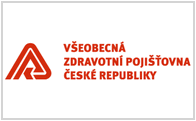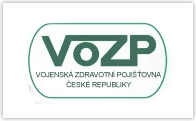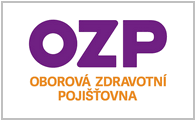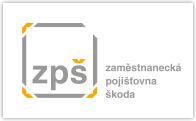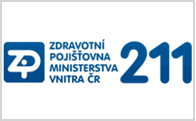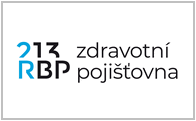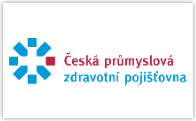Vážení poskytovatelé zdravotních služeb,
hlášení do Clearingového centra Kanceláře zdravotního pojištění o stavu očkovacích látek proveďte vyplněním formuláře zde:
Výhodami online vyplnění je především automatické potvrzení o odevzdání hlášení na email, automatické doplňování počátečních stavů očkovacích látek z minulého období a možnost opravy chybně zaslaného hlášení opětovným vyplněním.
Pokud z nějakého důvodu nemůžete použít Online formulář, je možné hlášení zaslat poštou, nebo emailem.
Pro stažení formuláře ve formátu XLSX nebo PDF pro zaslání poštou nebo emailem klikněte na jednu z ikon níže.
Informace o adrese, kam zaslat hlášení je uvedena přímo na formuláři. Údaje o pravidelném očkování je potřeba nahlásit do Clearingového centra nejpozději do 31. 7. 2021
KONTAKTY:
Společné klientské centrum KZP - Avenier Tel.: +420 800 11 22 33
Kancelář ZP - CC
Nám.W.Churchilla 2
130 00 Praha 3 Email: This email address is being protected from spambots. You need JavaScript enabled to view it., This email address is being protected from spambots. You need JavaScript enabled to view it.
Web: www.kancelarzp.cz
Poskytovatelům zdravotní péče je zákonem uložena povinnost hlásit data o vysoce inovativních léčivých přípravcích (VILP). Příjemci jsou zdravotní pojišťovny a žadatelé. Legislativně je tato skutečnost ukotvena v §39d zákona 48/1997 Sb., ve znění pozdějších předpisů a ve vyhlášce č. 376/2011 Sb. Každá zdravotní pojišťovna může pro své pojištěnce sbírat individuálně. Zdravotní pojišťovny projevily vůli na společném zajištění těchto činností. Pověření k realizaci této aktivity dostalo Národní referenční centrum. Činnosti související s vývojem informačního systému pro sběr dat VILP (IS-VILP) byly projednány a schváleny na 20. jednání Valné hromady Národního referenčního centra.
Přečtěte si článek ze Zdravotnického deníku, shrnující obsah prezentace ukazatelů kvality KZP, přednesené zástupcem ministra zdravotnictví na konferenci SAK.
V Praze dne 24.9.2021
JUDr. Ladislav Švec, ředitel
 V průběhu léta jsme do sady ukazatelů kvality zdravotních služeb doplnili 3 nové ukazatele z odbornosti chirurgie. Vždy se jedná o sledování mortality, a to po resekci pankreatu, resekci karcinomu tlustého střeva a karcinomu rekta.
V průběhu léta jsme do sady ukazatelů kvality zdravotních služeb doplnili 3 nové ukazatele z odbornosti chirurgie. Vždy se jedná o sledování mortality, a to po resekci pankreatu, resekci karcinomu tlustého střeva a karcinomu rekta.
https://puk.kancelarzp.cz/
V Praze dne 10.9.2021
JUDr. Ladislav Švec, ředitel
Dne 1.7.2021 vstoupilo v platnost nové ochranné opatření Ministerstva zdravotnictví, které stanovuje povinnosti při vstupu na území ČR (jak cizincům, tak občanům ČR). Opatření je je poměrně rozsáhlé a složité a obsahuje mnoho různých situací a výjimek a odlišných pravidel. Pokud se chystáte na cestu mimo ČR, věnujte mu zvýšenou pozornost.
V Opatření je stanovena obecná povinnost všem osobám, které vstoupí na území ČR, hlásit svému registrujícímu praktickému lékaři jakékoliv příznaky infekčního onemocnění. Dále ochranné opatření definuje situace podle návratu ze zemí se středním, vysokým, velmi vysokým a extrémním rizikem výskytu onemocnění Covid-19. Zařazení jednotlivých zemí do uvedených kategorií se bude postupem času jistě měnit, sledujte prosím odkaz na Rozcestník MZV, a rovněž stránky Ministerstva zdravotnictví, obsahující dokumenty Ochranné opatření – omezení překročení státní hranice České republiky a Sdělení MZd se seznamem rizikových zemí.
| Albánie | Fondi i Sigurimit të Detyrueshëm të Kujdesit Shëndetësor | |
 |
adr: Rruga "Sami Frasheri", nr. 8, Tiranë |
|
| Belgie | Institut National d'Assurance Maladie-Invalidité (INAMI) | |
 |
adr: Galileelaan 5/01, 1210 BRUXELLES e-mail: This email address is being protected from spambots. You need JavaScript enabled to view it. web: http://www.riziv.be tel: +32 2 524 97 97 fax: MD: 0206653946 |
|
| Bulharsko |
National Health Insurance Fund | |
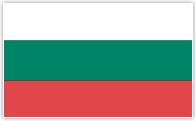 |
adr: 1, Krichim Str., 1407 Sofia e-mail: This email address is being protected from spambots. You need JavaScript enabled to view it., This email address is being protected from spambots. You need JavaScript enabled to view it. web: www.nhif.bg tel: +359 2 965 9116 fax: MD: 121858220 |
|
| Černá hora |
Fond za zdravstveno osiguranje Crne Gore |
|
 |
adr: ul. Vaka Đurović b.b., 81000 Podgorica e-mail: This email address is being protected from spambots. You need JavaScript enabled to view it. web: www.fzocg.me tel: +382 20 404 163 fax: +382 20 665 315 |
|
| Dánsko | Danish Patient Safety Authority - Patients's Rights and International Health Insurance |
|
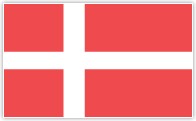 |
adr: Islands Brygge 67, 2300 Copenhagen S e-mail: This email address is being protected from spambots. You need JavaScript enabled to view it. web: www.stps.dk tel: +45 7228 6600 fax: +45 7228 6601 MD: 22166 |
|
| Estonsko | Eesti Haigekassa | |
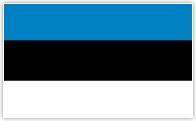 |
adr: Lastekodu 48, 10113 Tallinn e-mail: This email address is being protected from spambots. You need JavaScript enabled to view it. web: www.haigekassa.ee tel: +3726208430 fax: +3726208449 MD: 0001 |
|
| Finsko | Kansaneläkelaitos, Kansainvälisten asioiden keskus | |
 |
adr: Kauppamiehenkatu 4, 10 krs, 45100 Kouvola e-mail: This email address is being protected from spambots. You need JavaScript enabled to view it. web: www.kela.fi tel: +358206351808 fax: +358206351982 MD: 0100094460 |
|
| Francie | Centre de liaisons européennes et internationales de securité sociale |
|
 |
adr: 11, rue de la tour des Dames, 75436 PARIS CEDEX 09 e-mail: web: www.cleiss.fr tel: +33 1 45 26 33 41 fax: +33 1 49 95 06 50 MD: CLEISS0000 |
|
| Francie (přeúčtování) |
Centre National des Soins à l’Etranger (CNSE) | |
 |
adr: 60 RUE ANITA CONTI BP 20321, VANNES CEDEX 56021 e-mail: This email address is being protected from spambots. You need JavaScript enabled to view it. web: http://www.ameli.fr/ tel: +33 2 97 68 42 17 fax: +33 2 97 01 82 82 MD: 0156200000 |
|
| Chorvatsko | Hrvatski zavod za zdrastveno osiguranje - direkcija |
|
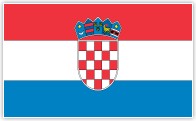 |
adr: Margaretska 3, 10000 Zagreb e-mail: This email address is being protected from spambots. You need JavaScript enabled to view it. web: www.hzzo.hr tel: +385 1 4806 333 fax: +385 1 4812 606 MD: 1001 |
|
| Irsko | Health Service Executive |
|
 |
adr: EU Regulations Office, St. Joseph's Hospital, Mulgrave St Limerick, Ireland e-mail: This email address is being protected from spambots. You need JavaScript enabled to view it. web: www.dohc.ie tel: +353 61 461227 fax: MD: HSE-44 |
|
| Island | Sjúkratryggingar Íslands | |
 |
adr: Laugavegur 114-118, 150 Reykjav¡k e-mail: This email address is being protected from spambots. You need JavaScript enabled to view it. web: www.sjukra.is tel: +354 5150000 fax: +354 5150051 MD: 4804080550 |
|
| Itálie | Ministero della salute DGRUERI ufficio II | |
 |
adr: Viale Giorgio Ribotta 5, 00144 Roma e-mail: This email address is being protected from spambots. You need JavaScript enabled to view it. web: www.salute.gov.it tel: +39 06 59942645 fax: +39 06 59942541 MD: 80500001 |
|
| Kypr | Ministry of Health | |
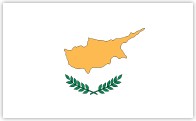 |
adr: 1 Prodromou & 17 Chilonos Str., 1448 Nicosia e-mail: This email address is being protected from spambots. You need JavaScript enabled to view it. web: www.moh.gov.cy tel: +35722605300 fax: +35722772234 MD: 1146507 |
|
| Lichtenštejnsko | Amt für Gesundheit (AG) | |
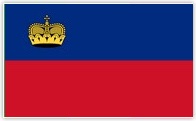 |
adr: Äulestrasse 51, 9490 Vaduz e-mail: This email address is being protected from spambots. You need JavaScript enabled to view it. web: www.ag.llv.li tel: +423 236 73 40 fax: +423 236 73 50 MD: 0001 |
|
| Litva | Valstybinė ligonių kasa | |
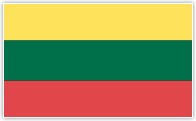 |
adr: Europos square 1, Vilnius LT-03505 e-mail: This email address is being protected from spambots. You need JavaScript enabled to view it. web: www.vlk.lt tel: +37052364100 fax: +37052364111 MD: 191351679 |
|
| Lotyšsko | Nacionālais veselības dienests | |
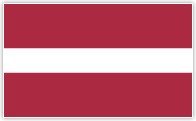 |
adr: Cēsu iela 31k-3, Rīga, LV-1012 e-mail: This email address is being protected from spambots. You need JavaScript enabled to view it. web: www.vmnvd.gov.lv tel: +37180001234 fax: +37167043701 MD: 0001 |
|
| Lucembursko | Caisse Nationale de Santé | |
 |
adr: 125, rue d'Esch, L 2980 Luxembourg e-mail: This email address is being protected from spambots. You need JavaScript enabled to view it. web: www.cns.lu tel: +352 2757 1 fax: +352 2757 2758 MD: 0018 |
|
| Maďarsko | Nemzeti Egészségbiztosítási Alapkezelő | |
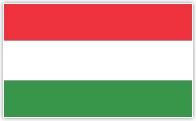 |
adr: Váci út 73/A, 1139 Budapest e-mail: This email address is being protected from spambots. You need JavaScript enabled to view it. web: www.neak.gov.hu tel: +3613501618 fax: +3613501638 MD: 1000 |
|
| Makedonie | Health Insurance Fund of Macedonia (FZOM) |
|
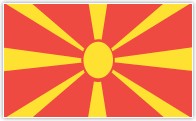 |
adr: ul Makedonia bb, 1000 Skopje e-mail: web: www.fzo.org.mk tel: fax: |
|
| Malta | Health Care Funding Directorate - EU Healthcare Entitlement Unit | |
 |
adr: St Lukes`Hospital, G`Mangia PTA 1010 e-mail: This email address is being protected from spambots. You need JavaScript enabled to view it. web: www.ehealth.gov.mt tel: +35622992325 fax: MD: 35602 |
|
| Německo | Deutsche Verbindungsstelle Krankenversicherung – Ausland (DVKA) |
|
 |
adr: Pennefeldsweg 12c, 53177 Bonn e-mail: This email address is being protected from spambots. You need JavaScript enabled to view it. web: www.dvka.de tel: +49 228 9530-0 fax: +49 228 9530-601 MD: 109910998 |
|
| Nizozemí | CAK | |
 |
adr: Postbus 84030 Den Haag 2508 AA e-mail: This email address is being protected from spambots. You need JavaScript enabled to view it. web: www.hetcak.nl tel: +31 88 711 5551 fax: +31 88 711 4500 MD: 9990 |
|
| Norsko | Helfo |
|
 |
adr: Postboks 2415 Tønsberg 3104 e-mail: This email address is being protected from spambots. You need JavaScript enabled to view it. web: www.helfo.no tel: +47 23 32 70 30 fax: MD: 2303 |
|
| Polsko | Centrala Narodowego Funduszu Zdrowia | |
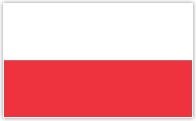 |
adr: ul. Rakowiecka 26/30, 02-528 Warszawa e-mail: This email address is being protected from spambots. You need JavaScript enabled to view it. web: www.nfz.gov.pl tel: +48225726000 fax: +48225726330 MD: CA17 |
|
| Portugalsko | Instituto da Seguranca Social, IP, Unidade de Coordenacao Internacional |
|
 |
adr: Av. 5 de Outubro, 175 - 9º, 1069-451 Lisbon e-mail: This email address is being protected from spambots. You need JavaScript enabled to view it. web: www.seg-social.pt tel: fax: MD: |
|
| Portugalsko (přeúčtování) |
Administração Central do Sistema de Saúde | |
 |
adr: Parque de Saúde de Lisboa Edifício 16 Avenida do Brasil, 53 Lisboa 1700-063 e-mail: This email address is being protected from spambots. You need JavaScript enabled to view it. web: www.acss.min-saude.pt tel: +351 217 925 800 fax: +351 217 925 848 MD: 9000 |
|
| Rakousko | Dachverband der österreichischen Sozialversicherung | |
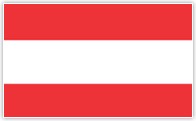 |
adr: Kundmanngasse 21, 1030 Wien e-mail: This email address is being protected from spambots. You need JavaScript enabled to view it. web: www.hauptverband.at tel: +43 1 71132-0 fax: +43 711 32 3779 MD: 9900 |
|
| Rumunsko | Casa Nationala de Asigurari de Sanatate | |
 |
adr: Calea Calarasilor 248, Bl.S19, District 3, 030618 Bucuresti e-mail: This email address is being protected from spambots. You need JavaScript enabled to view it. web: www.cnas.ro tel: +40372309270 fax: +40372309231 MD: 90021 |
|
| Řecko | National Organization for Healthcare Services Provision Division of International Affairs (EOPYY) |
|
 |
adr: Apostolou Pavlou 12, Maroúsi 15123 e-mail: This email address is being protected from spambots. You need JavaScript enabled to view it. web: www.eopyy.gov.gr tel: +302108110701 fax: +302108110710 MD: 10070002 |
|
| Slovensko | Úrad pre dohlad nad zdravotnou starostlivosťou | |
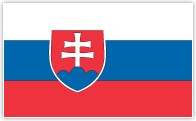 |
adr: Žellova 2, 82924 - Bratislava 25 e-mail: This email address is being protected from spambots. You need JavaScript enabled to view it. web: www.udzs-sk.sk tel: +421 2 208 56 226 fax: +421 2 593 11 371 MD: 9999 |
|
| Slovinsko | Zavod za zdrastveno zavarovanje Slovenije | |
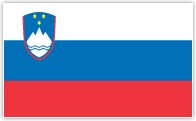 |
adr: Miklošičeva cesta 24, 1000 Ljubljana e-mail: This email address is being protected from spambots. You need JavaScript enabled to view it. web: www.zzzs.si tel: +386 1 30 77 200 fax: +386 1 43 13 245 MD: 0100008 |
|
| Srbsko | Institute for social insurance | |
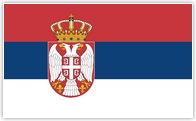 |
adr: Bulevar umetnosti 10, 11070 Beograd e-mail: This email address is being protected from spambots. You need JavaScript enabled to view it. web: www.zso.gov.rs tel: +381 11 201 74 97 fax: +381 11 311 54 70 |
|
| Španělsko | National Institute of Social Security - General Directorate | |
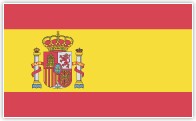 |
adr: C/ Padre Damian 4, 28036 Madrid e-mail: web: www.seg-social.es tel: +34915688300 fax: +34915611051 MD: 6000 |
|
| Švédsko | Försäkringskassan | |
 |
adr: Box 1164, 621 22 Visby e-mail: This email address is being protected from spambots. You need JavaScript enabled to view it. web: www.forsakringskassan.se tel: +46 771 524 524 fax: +46 101 120 540 MD: 12600 |
|
| Švýcarsko | Gemeinsame Einrichtung KVG | |
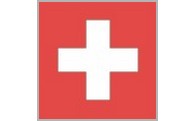 |
adr: Industriestrasse 78, 4609 Olten e-mail: This email address is being protected from spambots. You need JavaScript enabled to view it. web: www.kvg.org tel: +41 (0)32 625 30 30 fax: MD: 09999 |
|
| Tunisko | Caisse Nationale d'Assurance Maladie (CNAM) |
|
 |
adr: 12, Rue Abou Hamad El Ghazeli, Montplaisir, 1073 Tunis e-mail: This email address is being protected from spambots. You need JavaScript enabled to view it. web: www.cnam.nat.tn/index.jsp tel: +216 71 104 200 fax: +216 71 104 350 |
|
| Turecko | T.C. Sosyal Sigortalar Kurumu Başkanlığı Sigorta Işleri Genel Müdürlüğü Yurtdişi Işçi Hizmetleri Dairesi Başkanlığı |
|
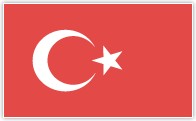 |
adr: Mithatpaşa Cad. No: 7, 06437 SIHHIYE/ANKARA e-mail: This email address is being protected from spambots. You need JavaScript enabled to view it. web: www.ssk.gov.tr tel: +90 3 124312273 fax: +90 3 124353214 |
|
| Velká Británie | DWP - Overseas Healthcare Team |
|
 |
adr: Durham House, Washington, Tyne and Wear, NE38 7SF e-mail: This email address is being protected from spambots. You need JavaScript enabled to view it. web: www.nhs.uk/NHSENGLAND/HEALTHCAREABROAD/Pages/Healthcareabroad.aspx tel: +44 191 218 1999 fax: +44 191 225 2131 |
|
If you are travelling to the Czech Republic with consent of your health insurance fund:
- It is always advisable to arrange the conditions (time and date etc.) of your healthcare treatment with the Czech healthcare provider in advance
- Firstly it is necessary to contact a Czech health insurance fund, to present there an S2 or E112 certificate and to auxiliary register yourself. The so called certificate of entitlement (Potvrzení o nároku) and a Czech insurance number will be issued to you. This certificate has to be presented to a healthcare provider. You may as well ask your Czech healthcare provider to facilitate or arrange the registration and certificate for you (depends on type of service and willingness of provider).
- If you register yourself auxiliary in a Czech health insurance fund the healthcare will be provided without direct payment. It is however necessary to pay upfront part of costs that would have to pay even a Czech insured person (e.g. extra services or a possible regulatory fee
Feedback on the quality of the information provided
If you are travelling to the Czech Republic without consent of your health insurance fund:
- It is always necessary to arrange the conditions of your healthcare and agree its price
- The price that is charged by Czech healthcare provider has to be adequate and the same as for the Czech citizen paying for the health care.
- The healthcare is provided under the same conditions, same rights and duties of a patient and a provider as in the case of a Czech citizen.
- A payment receipt has to be issued
The provider has to issue a detailed statement of provided services
Feedback on the quality of the information provided
RIGHTS OF THE PATIENT IN RELATION TO TREATMENT:
In relation to treatment, it applies that patients are entitled to being provided medical services on the appropriate professional level pursuant to Section 28, Act No. 372/2011 Coll., on Medical Services. When being provided medical services, the patient is further entitled to:
- be treated with respect, dignity, courtesy and respect of the patient’s privacy when being provided medical services in accordance with the nature of the provided medical services,
- choose a provider authorized to provide medical services that meet the health needs of the patient, and the medical facility, unless this Act or other legal regulations state otherwise - the possibility to choose a provider and medical facility does not relate to things such as medical emergency services, and to the providers to which the provider of the ambulance transports the patient, mandatory isolation, quarantine or protective treatment, etc.,
- request consulting services from a different provider or medical professional than the person who provides the medical services to the insured party; this does not apply during the provision of urgent care, or for persons in custody, imprisoned persons or persons in preventive detention,
- be informed of the internal regulations of the inpatient or single-day care medical care facility
- and further,
- If the persons is a minor, to the continuous presence of a legal representative or person designated by the legal representative, guardian or other person in whose care the patient was entrusted by the decision of a court or other authority.
- To the continuous presence of a legal representative or person designated by the legal representative, if the person is deprived of legal capacity, or is a person with limited legal capacity in such a way that the person is not capable of assessing the provision of health services, or the consequences of their provision,
- The presence of relatives or persons designated by the patient, in accordance with other legal regulations and internal rules, and if the presence of these persons does not disrupt the providing of medical services; this shall not apply for persons in custody, imprisoned or in preventive detention,
- be informed in advance about the price of the provided medical services not covered, or only partially covered by public health insurance, and the manner in which they are to be paid, if the insured party’s health condition allows for it ,
- know the name or names and surnames of medical care workers and other professionals directly involved in the provision of medical services, and persons preparing with the provider to perform medical services who are present when the medical services are provided, or who engage in activities that are part of instruction,
- refuse the presence of persons who are not directly involved in providing of medical services, and persons preparing to perform the occupation of a medical care worker,
- receive visitors in an inpatient or single-day care medical facility with regard to their health condition, and in accordance with internal regulations and in a manner that does not infringe on the rights of other patients, unless this Act or another law states otherwise,
- receive spiritual care and spiritual support at an inpatient or single-day care medical facility from clergy of churches and religious groups registered in Czech Republic, or from persons authorized to perform spiritual activities in accordance with internal regulations in a manner that does not infringe on the rights of other patients, and in view of the of the insured party’s health condition, unless stated otherwise by another legal regulation; a spiritual visit cannot be denied to the patient in cases where the patient’s life is in jeopardy, or in cases of serious injury, unless stated otherwise by another legal regulation,
- to the providing of medical services in an environment that is minimally restrictive while ensuring quality and safety of providing medical services.
RIGHTS OF PATIENTS TO INFORMATION ON HEALTH CONDITION:
The patient is entitled to be informed by the provider in an understandable manner, and to a sufficient extent, about his/her health condition, and about the proposed individual treatment procedure, and of all changes to it. This means providing information on
- the cause and origin of the sickness (if known), its stage and anticipated development,
- the purpose, nature, expected benefits, risks and possible consequences of the proposed health services, including individual medical procedures,
- other options to provide medical services, their relevance, benefits and risks for the patient,
- other necessary treatment,
- lifestyle restrictions and recommendations with regard to health, and
- options
- to waive receiving the health information (Section 32, Act on Health Services), and
- identify persons to whom information should be provided about patient’s health, or who may be informed about the patient’s state of health (Section 32 and Section 33, Act on Health Services) or, conversely, express prohibition on submitting health information to any person (Section 33, Act on Health Services)
Health information is communicated to the patient upon admission to care, and always if it is appropriate when taking into account the provision of health services or health condition of the patient.
The patient, or a person designated by the patient, must be allowed to ask additional questions related to the patient’s medical condition and proposed medical services, and such questions must be answered clearly.
The patient may waive receiving the information about his/her health, or may determine the person to whom it is to be communicated. The record of waiver of receiving the information on health status and determining the persons to whom the health information is to be communicated is part of the medical records of the patient.
FREE AND INFORMED CONSENT OF THE PATIENT WITH TREATMENT:
Medical services may only be provided to a patient with the patient’s free and informed consent, or if such consent can be assumed. The patient must thus have sufficient information in order to be able to make a decision regarding whether he/she will agree with the proposed treatment.
Consent with providing medical services is considered
a) free, if it is given without any pressure,
b) informed, if the patient is provided with information, prior to granting consent about the medical condition of the patient, and about the proposed medical services pursuant to Section 31, Act on Medical Services; consent shall also be considered informed in cases where the patient waived receiving the information pursuant to Section 32, paragraph1.
Despite adequate explanation, the patient may, however, refuse the necessary treatment – in such a case, the attending physician shall request a written statement (so called “revers” – the requirements thereof are set out in the Decree of the Ministry of Health No. 98/2012 Coll., on Healthcare Documentation).
Although no legal regulation stipulates how long the patient should be given to make up his/her mind, the basic rule should be applied that the more complex the treatment is, the longer such time should be. In some cases, the patient’s consent or the consent of his/her legal representative with the performance of treatment must be in writing (i.e. if the requirement of written form of the consent is set out in the Act on Medical Services or if the healthcare facility requested the consent in written form with regard to the nature of the treatment). The requirements regarding the content of the consent with the treatment in writing are stipulated in the Decree on Healthcare Documentation.
A patient may also withdraw his/her consent with the providing of medical services. Withdrawal of consent is not effective if a medical procedure has already begun whose interruption can cause serious injury or threaten the life of the patient.
A patient may in the future be in such a state of health in which he/she will not be able to agree or disagree with the providing of health services, and the manner in which they are provided – the patient may therefore provide such approval or disapproval in advance. This is the so-called institute of "previously-voiced request" pursuant to Section 36, Act on Medical Services. Only such a previously-voiced request will be respected which was made on the basis of a written instruction of the patient about the consequences of his/her decision by a general medical practice physician which whom the patient is registered, or by another attending physician in the field of medical care to which the previously-voiced request relates. The previously-voiced request must be in writing and must be accompanied by an officially certified signature of the patient, and it is valid for 5 years. Previously-voiced requests that encourage such practices which can result in an active cause of death, or if its fulfilment could endanger others, cannot be respected.
A patient may only be provided emergency care without the patient’s consent, and this applies in cases where the patient is unable to express such consent (which shall not affect the patient’s previously-voiced request), or in the case of treatment of a serious mental disorder, which, if left untreated, could in all likelihood seriously harm the patient. Urgent care without the consent of a legal representative to a minor can be provided for the same reasons, or to a patient deprived of legal capacity, and also in the case of medical services that are necessary to save a life or prevent serious harm to health, or if there is suspected torture, abuse or neglect with regard to the patient.
RIGHT OF A PATIENT TO MEDICAL DOCUMENTATION:
Pursuant to Section65, Act No. 372/2011 Coll., on Medical Services, in relation to medical documentation, patients are also entitled to:
- be provided with all of the information gathered in the medical documentation kept about the patient, or in other records relating to the state of the patient’s health.
- view the medical documentation in the presence of an employee authorized by the provider
- receive an abstract or copy of the medical documentation. If a patient does not acquire an abstract or copy by his/her own means on location, the provider shall make a copy of the medical documentation. The provider shall make an abstract or copy of the medical documentation within 30 days of being requested to do so. Such a request shall be submitted to the medical facility that keeps the documentation, preferably in writing. The provider may request payment for making an abstract or copy of the medical documentation for an amount that may not exceed the costs relating to the work. The price list for making an abstract or copy of the medical documentation must be located at a place that is publically-accessible to patients.
- determine a person who may view the medical documentation and acquire abstracts or copies of it. The legal representative of the patient may also determine such a person.
The patient or the patient’s legal representative shall be advised on the above rights by the attending physician.
RIGHT TO INFORMATION ON THE MEDICAL CONDITION OF A DECEASED PATIENT:
Persons closely related to the deceased patient, unless the patient determined otherwise when living, or other persons, if any, the patient may have indicated as persons who may be informed of his/her state of health have the right to be informed of the state of health of a patient who died, on the causes of death and results of autopsy, if any, the right to inspect in the presence of healthcare personnel the healthcare documentation or any other records related to the patient’s state of health, and to make extracts or copies of such documents. If during his/her lifetime a deceased patient prohibited the sharing of information on his/her health condition to certain people close to the patient, such information may only be given to such persons if it is in the interest of protecting their health, or the health of other persons, and only in the necessary scope.
CODE OF ETHICS FOR THE RIGHTS OF PATIENTS:
Last but not least, the Central Ethics Committee of the Ministry of Health of the Czech Republic prepared and adopted the patient rights codex, so called Ethic Codex of Patient Rights, declared valid as of 25 February 1992:
- The patient has a right to considerate professional healthcare provided with understanding by qualified personnel.
- The patient has a right to know the name of the physician and other healthcare personnel providing care. He/she has a right to request privacy and reasonable services available within the institution as well as the possibility to be in contact with the family members or friends on a daily basis. These visiting options (i.e. continuous) may only be limited due to serious reasons.
- The patient has a right to receive from his/her physician any data necessary to make an informed decision on consent prior to the commencement of each further new diagnostic or therapeutic procedure. Except in cases of emergency, the patient should be adequately informed of any possible risks connected to the mentioned procedure. If there are multiple alternative procedures or if the patient requires information on treatment options, he/she is entitled to be advised of them. The patient also has a right to know the names of the persons involved.
- The patient has, in the extent permissible by law, a right to refuse treatment and at the same time he/she should be informed of the consequences of such a decision for his/her health.
- During both outpatient and inpatient examination, assistance and treatment, the patient has a right to maximum consideration being given to his/her privacy and decency in relation to the scheduled treatment. Case analyses, consultations and treatment are private and must be conducted in a discrete manner. The presence of persons not directly involved in the treatment must be approved by the patient, even in faculty facilities, unless the patient has chosen such persons him/herself.
- The patient has a right to expect that all reports and records related to his/her treatment are treated as confidential. The protection of information on the patient must also be ensured in cases of computer processing.
- The patient has a right to expect that the hospital must, as possible, reasonably comply with the patient’s requests for the provision of care in an extent corresponding to the nature of his/her illness. If necessary, the patient may be handed over or transferred to another healthcare institution after being provided with a complete justification and information on the necessity of such transfer and other existing options. The institution receiving the patient in its care must approve the transfer in advance.
- The patient has a right to expect that his/her treatment will be conducted with reasonable continuity. He/she is entitled to know in advance what physicians are available to him/her, at what attendance hours and where. Following the release, the patient has a right to expect that the hospital determines the procedure for his/her attending physician to continue providing information on further care.
- The patient has a right to detailed explanation comprehensible to him/her in case the physician decided to apply a non-standard procedure or an experiment. The patient’s conscious consent in writing is a prerequisite to the commencement of both non-therapeutic and therapeutic research. The patient may, at any time and without stating the reason, withdraw from any experiment after having been advised of any possible consequences of such a decision for his/her health.
- The patient at the end of his/her life has a right to sensitive care of all healthcare personnel who must respect his/her wishes unless these are in conflict with applicable law.
- The patient has a right and an obligation to know and comply with the valid regulations of the healthcare facility providing treatment to him/her (so called hospital regulations). The patient has a right to check his/her bill and request an explanation of the items on the bill, regardless of who pays the bill.
Feedback on the quality of the information provided
FILING A COMPLAINT
If the insured person believes that he/she does not receive adequate healthcare, he/she may:
a) file a motion for review to the manager of the healthcare facility or its founder
Any complaint should first be addressed to the manager of the healthcare facility who will investigate the matter. The settling of a complaint is governed by the Act No. 500/2004 Coll., the Code of Administrative Procedure, and the complaint should therefore be settled within 60 days. If the insured person is not satisfied with how his/her complaint addressed to the manager of the healthcare facility has been settled, he/she may subsequently contact the founder of the specific healthcare facility (usually the Region or the Ministry of Health) to complain about how his/her previous complaint has been settled. Such complaint should also be settled within 60 days.
b) contact the competent public authority who performed the registration of the healthcare facility in accordance with a special act (Section 8 of the Act No. 160/1992 Coll., on Healthcare in Non-Governmental Healthcare Facilities).
If the insured person is not satisfied with how his/her complaint addressed to the manager of the healthcare facility which is a non-governmental healthcare facility has been settled, he/she may subsequently contact the competent public authority who performed the registration of the healthcare facility in question to complain about how his/her previous complaint has been settled. In this case, the complaint should again be settled within 60 days.
c) contact the Czech Medical Chamber, the Czech Dental Chamber or the Czech Pharmacists’ Chamber if the deficiencies concern the professional or ethical procedure applied by a physician or a pharmacist, or any other professional, if established, if the mentioned deficiencies concern other healthcare personnel.
The Act No. 220/1991 Coll., of the Czech National Council, on the Czech Medical Chamber, the Czech Dental Chamber and the Czech Pharmacists' Chamber stipulates the terms and conditions of membership in individual Chambers and the activities of the Chambers including the procedure for filing complaints and the settlement thereof. Pursuant to this Act, every physician practising the medical profession in medical treatment and preventive care (i.e. treats and works with patients) in the territory of the Czech Republic must be a member of the Czech Medical Chamber. Similarly, every dentist practising the profession of a dentist in the territory of the Czech Republic must be a member of the Czech Dental Chamber. And last but not least, a graduate of higher education in the field of pharmacy practicing his/her profession in a pharmacy facility in the territory of the Czech Republic must also be a member of the Czech Pharmacists’ Chamber.
The Act confers to the Chambers an authority to settle complaints concerning the professional practice of their members and at the same time to apply disciplinary authority in the extent set out in this Act if any member of the Chamber fails to practice their profession in an expert manner, in line with the profession’s ethics and in a manner set out by law and in the Chambers’ regulations. If, therefore, the patient believes that this is the case, he/she has a right to contact the respective Chamber with his/her complaint. The procedure for the settlement of such complaints is set out in the disciplinary regulations of each of the Chambers which may be downloaded from the websites of the individual Chambers:
Czech Medical Chamber: http://www.lkcr.cz/
Czech Dental Chamber: http://www.dent.cz/
Czech Pharmacists’ Chamber: http://www.lekarnici.cz/
d) contact the health insurer with whom he/she is insured, namely if the healthcare personnel refuse to perform a medical act included in healthcare cover.
In such a case, the health insurer may only deal with the issue provided that it concluded an agreement with the respective healthcare provider (i.e. the hospital, clinic or physician). The insurer will examine the justification of the complaint via its medical inspector. The settlement of a complaint is governed by the Code of Administrative Procedure and the complaint should therefore be settled within 60 days.
If the insured person believes that public authorities and other institutions act in conflict with the law, not in line with the principles of democratic rule of law and good governance or that public authorities are idle, he/she may contact the Public Defender of Rights – the Ombudsman of the Czech Republic.
In the area of health insurance and the provision of healthcare, the Ombudsman can review for instance the procedure applied by the Regional Authority, the Ministry of Health of the Czech Republic or the health insurer to the settlement of the insured person’s complaint, but he is not authorised to examine the professional medical aspect of the complaint.
Contact and further details are available at the Public Defender of Rights’ website here.
The insured person may also contact the so called hospital ombudsman if he/she is not satisfied with the acts or services of any specific hospital.
The hospital ombudsman is a defender of patients’ rights and interests in the hospital in which this position is established. He/she accepts proposals for improvement of the services provided and assists in the solution of any dissatisfaction of the patients or their family members with the services provided, immediately and directly in the hospital. The activities of the hospital ombudsman include arranging for communication between the respective hospital ward concerned in the complaint and the patient or his/her family, establishing the actual state of affairs and assisting in securing a remedy. The ombudsman may be contacted in person, by telephone or in writing to the e-mail or postal address of the hospital. Further contact details are available directly in the respective hospital or on its website.
If the insured person believes that the European legal regulations have been applied incorrectly by the public authorities, he/she may contact SOLVIT – the system of solving problems in the EU internal market which principally handles any problem between a citizen on one side and an EU Member State on the other side. SOLVIT consist of a network of centres cooperating with each other to solve problems caused by misapplication of European law by public authorities. There are SOLVIT centres in every EU Member State as well as in Norway, Lichtenstein and Iceland.
Contact details and further information on how SOLVIT centres work are available here.
OUT-OF-COURT DISPUTE SETTLEMENT / MEDIATION
Mediation as such is regulated in the Czech legal system only in criminal law for the purposes of resolving disputed between the aggrieved party and the offender in criminal proceedings. Mediation as an alternative to civil legal proceedings (e.g. concerning compensation for damages) is nor expressly regulated by law, which however does not mean that it is forbidden by law or that the results of mediation are not considered legally valid.
As a part of an out-of-court resolution of disputes which occurred, the parties may conclude a so called settlement agreement in accordance with Section 585 of the Act No. 40/1964 Coll., the Code of Civil Procedure, and thereby resolve the situation in dispute in a way that is binding on both parties without the need for legal proceedings which is often disadvantageous due to great time and financial demands. It must be emphasised that any settlement agreement concluded has effects similar to a judgement of a court even though no legal proceedings occurred. In other words, the resolution on the parties’ respective rights and obligations contained in the agreement is binding and it is not possible to validly re-claim performance on the same grounds in court.
The basic principles of mediation are as follows:
Mediation is a voluntary procedure and, of course, the other party may not be forced to take part in it (as opposed to legal proceedings). Any resolution of a dispute through mediation is therefore a matter of agreement between both parties.
Mediation is not open to the public; it does not take place in court. Mediation is a confidential procedure taking place in the presence of a mediator selected by both parties. An agreed remuneration is then paid to the mediator, either by one of the parties only or by both of them.
The mediator is actively involved in the resolution of the matter in dispute, he does not assume a superior position to the parties, he does not take the decision (unlike a judge). His task is to help the parties find such a solution to their problem which will satisfy both parties.
Mediation usually tends to resolve the matter in dispute much faster than in case of legal proceedings. The matter in dispute is usually being solved during several mediation meetings (generally 1-5 meetings). If the parties do not come to an agreement during these meetings, the mediation is usually terminated and the parties may attempt to resolve their dispute in court or by other means.
The publication “How to reach an out-of-court settlement – Mediation as a means of settling disputes in healthcare” is available for download at the League of Human Rights’ website here.
DISPUTE SETTLEMENT BY MEANS OF LEGAL PROCEEDINGS
Generally, the patient chooses to resolve a dispute by means of legal proceedings if an agreement has not been reached by means of an out-of-court settlement, for instance because the patient and the healthcare provider failed to agree on the amount of compensation for damages the patient asks for.
In case the patient decides to contact a court with a civil lawsuit (Act No. 99/1963 Coll., the Code of Civil Procedure), he/she may do so in two ways, either by filing an action for damages (Section 415 et seq. of the Act No. 40/1964 Coll., the Civil Code), or an action for the protection of personality (Section 11 et seq. of the Civil Code). The two types of action mentioned above may also be filed simultaneously. Each of them not only has a different purpose, however, but there are also differences in the competence of courts, the deadline for filing an action, the costs of proceedings, possibilities of satisfaction etc. An action for damages may only be filed in case that a physician’s fault caused damage to the patient’s health; an action for the protection of personality, on the other hand, is filed in case of an encroachment on the right to the protection of personality (i.e. violation of the patient’s civil honour and human dignity, privacy, family life etc.). When filing a lawsuit, a court fee must also be taken into consideration (Act No. 549/1991 Coll., on Court Fees) and possible further expenses (remuneration to a legal representative, preparation of an expert opinion) as well as rather long timeframe of the whole proceedings and the necessity to carry the burden of proof to prove one’s allegations.
Quite certainly, the more frequently filed type of lawsuit is an action for damages caused by a specific physician’s fault. That must be filed within two years of the date on which the aggravated person found out about the damage and who is responsible for it, otherwise the right to a compensation for damages will be forfeited (and the right can not then be successfully claimed in court if the defendant raises the objection of forfeiture). It is true, however, that even following the expiry of this term, the healthcare provider may voluntarily compensate the aggravated person.
In court, the compensation for damages is determined in accordance with the provisions of the Civil Code and the Decree of the Ministry of Health No. 440/2001 Coll., on Compensation for Pain and Aggravation of Social Position. The actual damages will be paid, i.e. the costs related to medical treatment, along with lost profit (loss of income) and compensation for pain and aggravation of social position (as a lump sum the amount of which is determined in accordance with the Decree. In justified cases, the amount of such compensation may be increased to correspond to the actual damage).
The Civil Code also stipulates that for any death loss the survivors will be paid a lump sum compensation in a certain amount, being CZK 240,000 to the spouse, each child, each parent and every other closely related person living in the common household with the deceased person at the time of the occurrence of the event which was the cause of the damage to health resulting in death, and further CZK 85,000 to each parent in case of a loss of an unborn conceived child, and CZK 175,000 to each sibling of the deceased person. Further, in case of death, the cost of alimony is paid to the survivors as well as reasonable costs related to the burial unless these were covered by burial allowance provided in accordance with the Act on State Social Support. The extent of this lump sum compensation is thus set out by law as specific financial sums, which may be considered as a somewhat unusual solution within private law.
In addition to the above right to lump sum financial compensation, the survivor may also apply in court the right following from the protection of personality (Section 11 et seq. of the Civil Code) where the amount of compensation for this non-proprietary damage is not limited in any way.
A situation may also occur where the fault of specific healthcare personnel may be considered so serious that it could represent a criminal offence (this could involve mainly crimes against life and health set out in Chapter I. of the Special Section of the Act No. 40/2009 Coll., the Criminal Code, namely negligent bodily injury pursuant to Section 148, serious negligent bodily injury pursuant to Section 147, negligent killing pursuant to Section 143, etc.). A criminal charge may then be filed to the respective office of the Police of the Czech Republic or the Office of the Public Prosecutor. A criminal charge may be filed orally or in writing (by means of a letter, facsimile or e-mail) by any person, not only the aggravated person. No administrative or other fees are charged for filing a criminal charge. The utilization of this means should, however, be considered carefully since it represents an ultimate remedy which should only be used in cases of very serious faults.
Feedback on the quality of the information provided
More Articles ...
- Czech legal acts
- Foreign citizen travelling to CZ
- Health insurance system in CZ
- Metodiky provádění pravidelného očkování
- Seznam členů a konzultantů Národní rady VILP
- Dekubity 2009 – 2019
- Historie
- Současný stav agendy
- Brexit – withdrawal agreement approved
- Brexit
- Health care during a temporary stay in the Czech Republic for EU insured persons
- The new Czech-Tunisian agreement
- Clearingové centrum
- Jak se kde léčí
- Ověření odevzdání hlášení do CC
- Dokumenty ke stažení
- Change in Health Insurance of US Self-emloyed
- Aktuální referenční hodnoty
- Užitečné dokumenty a odkazy
- Přístup do webového rozhraní
 Uncategorised
Uncategorised